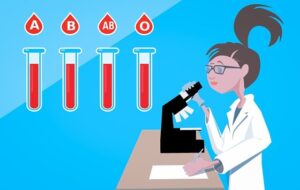Advanced gastric cancer is expected to usher in new targeted therapies
- Gut Bacteria Enzymes Offer Hope for ABO Universal Blood Transfusions
- Well-Known Japanese Medicine Exposed for 30 Years of Data Falsification
- Oregon Reverses Course: From Decriminalization to Recriminalization of Drug Possession
- Why Lecanemab’s Adoption Faces an Uphill Battle in US?
- Yogurt and High LDL Cholesterol: Can You Still Enjoy It?
- WHO Releases Global Influenza Vaccine Market Study in 2024
Advanced gastric cancer is expected to usher in new targeted therapies
Advanced gastric cancer is expected to usher in new targeted therapies. Eighty percent of gastric cancer patients are found to be at an advanced stage! More than 1 million cases of gastric cancer are diagnosed globally each year.
The good news is that recently, the US FDA granted the FGFR2b monoclonal antibody Bemarituzumab a breakthrough therapy designation, combined with chemotherapy, to treat patients with locally advanced or metastatic gastric cancer and gastroesophageal junction (GEJ) cancer. The patient is looking forward to it.
Not long ago, the FDA also approved the immune combination therapy “O drug” nivolumab combined with chemotherapy, the first-line treatment of gastric cancer, gastroesophageal junction cancer and esophageal adenocarcinoma, bringing new dawn to advanced or metastatic gastric cancer.

▌The dilemma of targeted therapy for gastric cancer
The first choice of treatment for patients with HER2-positive advanced gastric cancer is targeted therapy. In August last year, the antibody conjugate Enhertu was approved in Japan, bringing new treatment options for this type of gastric cancer patients.
However, about 80%-85% of patients with advanced gastric cancer and gastroesophageal junction cancer are HER2-negative, and about 30% of them overexpress FGFR2b. The prognosis of tumors with FGFR2b overexpression is usually poor, and treatment options are very limited after the progression of first-line chemotherapy.
After advanced patients undergo first-line chemotherapy, the disease progression can be delayed for about 6 months, but the median overall survival is less than 1 year. It can be said that there is a huge unmet medical demand for targeted therapies for gastric cancer in the world, and there is an urgent need for more effective and tolerable targeted drugs.
▌Aim at FGFR2b: new targeted drug Bemarituzumab
Fibroblast growth factor receptor (FGFR) pathway is involved in the growth and development of cancer cells. FGFR2b is a form of FGFR that exists in epithelial cells, such as the stomach and skin. By blocking the signal pathway mediated by FGFR, the purpose of inhibiting tumor growth can be achieved.
Bemarituzumab is an innovative, humanized, homologous selective monoclonal antibody targeting FGF family FGFR2b, which can block FGF ligand signal binding and activate FGFR2b, inhibit multiple downstream pathways, thereby slowing cancer progression . Moreover, it can also kill cancer cells through antibody-dependent cell-mediated cytotoxicity (ADCC).
In addition, the researchers also found that FGFR2b is overexpressed in many other cancers, including squamous non-small cell lung cancer, triple-negative breast cancer, ovarian cancer, pancreatic cancer, and intrahepatic cholangiocarcinoma. This means that Bemarituzumab has the potential to become a “broad-spectrum” anticancer drug.
In addition, studies have found that FGFR2b-positive patients tend to have higher PD-L1 expression, which means that Bemarituzumab is expected to be used in combination with immunotherapy in the future to exert greater power.
At present, 2 FGFR inhibitors have been approved for marketing worldwide:
In April 2019, Erdafitinib, the world’s first oral pan-FGFR inhibitor, was approved by the FDA for accelerated marketing for the treatment of locally advanced or metastatic bladder cancer adult patients with specific allergenic FGFR3 or FGFR2 gene mutations.
In April 2020, the pan-FGFR inhibitor Pemigatinib was approved to be marketed in the United States at an accelerated rate for the treatment of patients with treated advanced cholangiocarcinoma carrying FGFR2 gene fusion or other rearrangements. It is also the world’s first targeted therapy for advanced cholangiocarcinoma.
In addition, there are many FGFR targeted therapies under development around the world, which are worth looking forward to.
▌Significantly improve the progression-free survival period, and the clinical trial has reached the end point!
This determination is based on the positive results of the Phase 2 clinical trial of FIGH. The FIGH trial is the first study to target FGFR2b overexpression, evaluating the efficacy of bemarituzumab combined with chemotherapy in patients with advanced gastric cancer or GEJ cancer.
According to the FDA-approved companion diagnostic test, in the subgroup of patients with at least 10% of tumor cells overexpressing FGFR2b, bemarituzumab combined with chemotherapy significantly improved the progression-free survival and overall survival of the patients, reaching the primary endpoint and secondary To the end.
Further analysis showed that the clinical benefit of patients was positively correlated with the proportion of FGFR2b-positive tumor cells. This confirms the importance of the FGFR2b target and the activity of Bemarituzumab against this target.
Dr. Zev A. Wainberg, a gastrointestinal oncologist from Good Doctor Medical Network, Co-Director of the UCLA Gastrointestinal Tumor Project, and Director of Early Clinical Research Support at the Johnson Comprehensive Cancer Center, said:
“We have long discovered that FGFR is a potential target for gastric cancer and many other cancers. This is the first study to prove that FGFR2b targeted therapy can reduce the risk of gastric cancer progression and improve overall survival.
The results of the study show that Bemarituzumab has potential benefits, which is an exciting and significant research development. “
As a first-line therapy, Bemarituzumab has clinically significant improvement in the treatment of patients with advanced gastric cancer. It is expected that the drug will be approved as soon as possible, so that the treatment of patients with advanced gastric cancer will avoid detours.
(source:internet, reference only)
Disclaimer of medicaltrend.org



